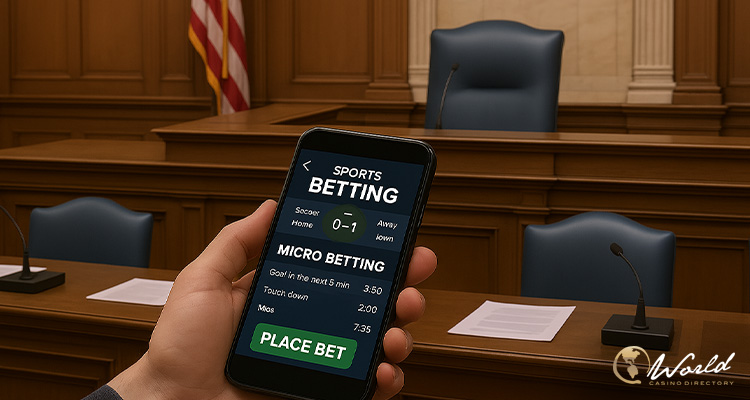A newly introduced bill in New Jersey aims to curb the risks associated with micro-betting, a fast-paced form of in-game sports wagering. Assemblyman Dan Hutchison, a key proponent of the bill, introduced Assembly Bill A5971 with the intent to ban sports betting operators from offering “micro-bets.” This form of betting allows gamblers to place wagers on immediate, game-specific outcomes, such as the result of the next play or pitch in a sporting event.
The Growing Risks of Micro-Betting
Micro-betting is characterized by its rapid-fire pace, enabling gamblers to place one bet after another with minimal time to consider the outcomes. Hutchison, who serves as a representative for New Jersey’s 4th District, voiced concerns about the harm that micro-betting could inflict, particularly on vulnerable individuals. “The pace of micro-betting is designed to keep people gambling constantly, making one impulsive bet after another with little time to think,” Hutchison stated. “This bill is a commonsense step to slow that cycle down and protect individuals from the financial and emotional harms that can come with excessive betting.”
In addition to Hutchison’s perspective, experts in the field of compulsive gambling also see micro-betting as a significant threat. The Council on Compulsive Gambling of New Jersey (CCGNJ) reported a near 300% increase in calls to its helpline since the legalization of sports betting in 2018. According to Daniel Meara, a CCGNJ communications specialist, micro-betting is a dangerous form of gambling because of its quick nature and the dopamine rush it provides, which can escalate the development of problem gambling behaviors. “Micro-betting is one of the most troubling manifestations of the new gambling environment,” Meara commented.
Under the proposed legislation, micro-betting would be defined as any proposition bet placed during a sporting event that relates to the next play or action. Violating operators who continue to offer micro-bets would face penalties, with fines ranging from $500 to $1,000 per offense. This move reflects growing concerns among New Jersey lawmakers and gambling regulators about the impact of this high-speed betting format on consumers.
Hutchison believes that micro-betting accelerates the process of gambling addiction, particularly in younger populations. “We need to protect individuals from the risks of this rapidly growing trend,” he emphasized. This bill, according to Hutchison, is a part of broader efforts to establish boundaries within New Jersey’s thriving sports betting industry and to ensure gambling is conducted responsibly.
Industry Impact and Further Legislative Actions
The proposed legislation could have far-reaching consequences for sports betting operators. New Jersey was the first state outside of Nevada to legalize online sports betting, and its market has since seen significant growth. As sportsbooks continue to expand, the financial implications of banning micro-betting could be substantial. DraftKings, a prominent sportsbook operator, acquired the micro-betting company Simplebet for $80 million last year, highlighting the growing appeal of this betting format.
However, Hutchison’s bill is not just about regulating betting formats; it also aligns with a larger initiative to protect sports bettors and college athletes. The recent passage of laws banning partnerships between sportsbooks and state universities further indicates the state’s commitment to ensuring the well-being of both bettors and student-athletes.
Another concern raised by Hutchison and others is the potential for micro-betting to be manipulated. These bets are often easier to fix than traditional bets, given the immediacy of the outcomes involved. In fact, several instances of professional athletes being investigated for allegedly altering their performances to influence betting outcomes have raised alarm bells. Major League Baseball (MLB), for instance, is currently investigating Cleveland Guardians pitchers Luis Ortiz and Emmanuel Clase after suspicious betting activity was linked to their performances in June 2025.
In addition to the integrity risks posed to sports, micro-betting also places athletes in a precarious situation. According to reports, over half of professional athletes may be involved in some form of sports betting, with roughly 8% of them being categorized as problem gamblers. These figures underscore the importance of regulating micro-betting to maintain both the mental health of athletes and the integrity of the sport itself.
While the debate over micro-betting continues, Hutchison has emphasized that the legislation is not about banning sports betting itself. “This legislation isn’t about banning sports betting. It’s about setting boundaries to ensure it’s done responsibly,” he said, as reported by PIX11. The bill, if passed, would be a significant step in mitigating the potential harms caused by impulsive gambling and ensuring a more responsible approach to sports wagering.


